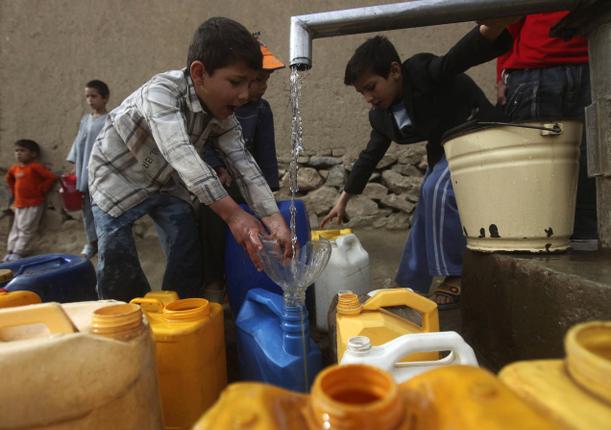“Drinking water supply for majority of Kabul’s residents remains contaminated and is causing serious health implications,” says NEPA
By Akhtar M. Nikzad-KABUL: The National Environmental Protection Agency (NEPA) on Sunday said that groundwater was polluted in most parts of Kabul city due to construction of unplanned townships.
Chief of Surveillance and Auditing in NEPA, Nik Mohammad, told Afghanistan Times that unplanned constructions and digging of substandard septic wells have contaminated the underground water in the capital.
He said that 90 percent of the constructions are unplanned and against the NEPA regulations. He warned that water contamination would increase drastically and threaten life of every citizen if the townships, residential complexes and commercial areas were not built according to the regulations.
Up to seven million people are living in the capital city and in the same time the town skirt is gradually expanding. Lack of water treatment plants in the city is another major problem. There is only one plant but that could not resolve the problem.
Nik Mohammad said that majority of the townships have no water purification plant and some of the townships discharge wastewater to the residential areas.
“Many substandard townships were built without observing the standards and building criteria. Now these townships and the unplanned buildings have created environmental challenges which cannot be resolved easily,” he said.
A joint committee of all governmental organizations is working together at NEPA to find a solution and treat the groundwater and wastewater.
Members of the committee say that there is need for seven wastewater treatment plants in the city. The committee says that the ministries and organizations should treat the water on their own.
Despite advancement in the field of technology, Afghanistan lacks modern wastewater treatment facilities to resolve the environmental problems.
Officials of the NEPA say that water treatment plants require extraordinary budget and time. They asked people to pay attention over hazards of nonstandard septic wells.
Some health experts claimed that the illnesses rate in compare to the provinces is high in the capital city because residents of Kabul city drink polluted water.
Doctor Noor Ahamd warned that if government does not pay attention over pollution of underground water then it might bring a disaster in the country.
As there is no potable water supply system in the city to provide drinkable water to residents. People buy a liter of water at Afs15. Over 70 percent of Kabul population depends on groundwater for drinking water. However, the groundwater is polluted.
According to the US Groundwater Foundation, groundwater contamination occurs when man-made products such as gasoline, oil, road salts and chemicals get into the groundwater and cause it to become unsafe and unfit for human use.
Materials from the land’s surface can move through the soil and end up in the groundwater. For example, pesticides and fertilizers can find their way into groundwater supplies over time. Road salt, toxic substances from mining sites, and used motor oil also may seep into groundwater. In addition, it is possible for untreated waste from septic tanks and toxic chemicals from underground storage tanks and leaky landfills to contaminate groundwater.
Drinking contaminated groundwater can have serious health effects. Diseases such as hepatitis and dysentery may be caused by contamination from septic tank waste. Poisoning may be caused by toxins that have leached into well water supplies. Wildlife can also be harmed by contaminated groundwater. Other long term effects such as certain types of cancer may also result from exposure to polluted water.
 Afghanistan Times
Afghanistan Times




